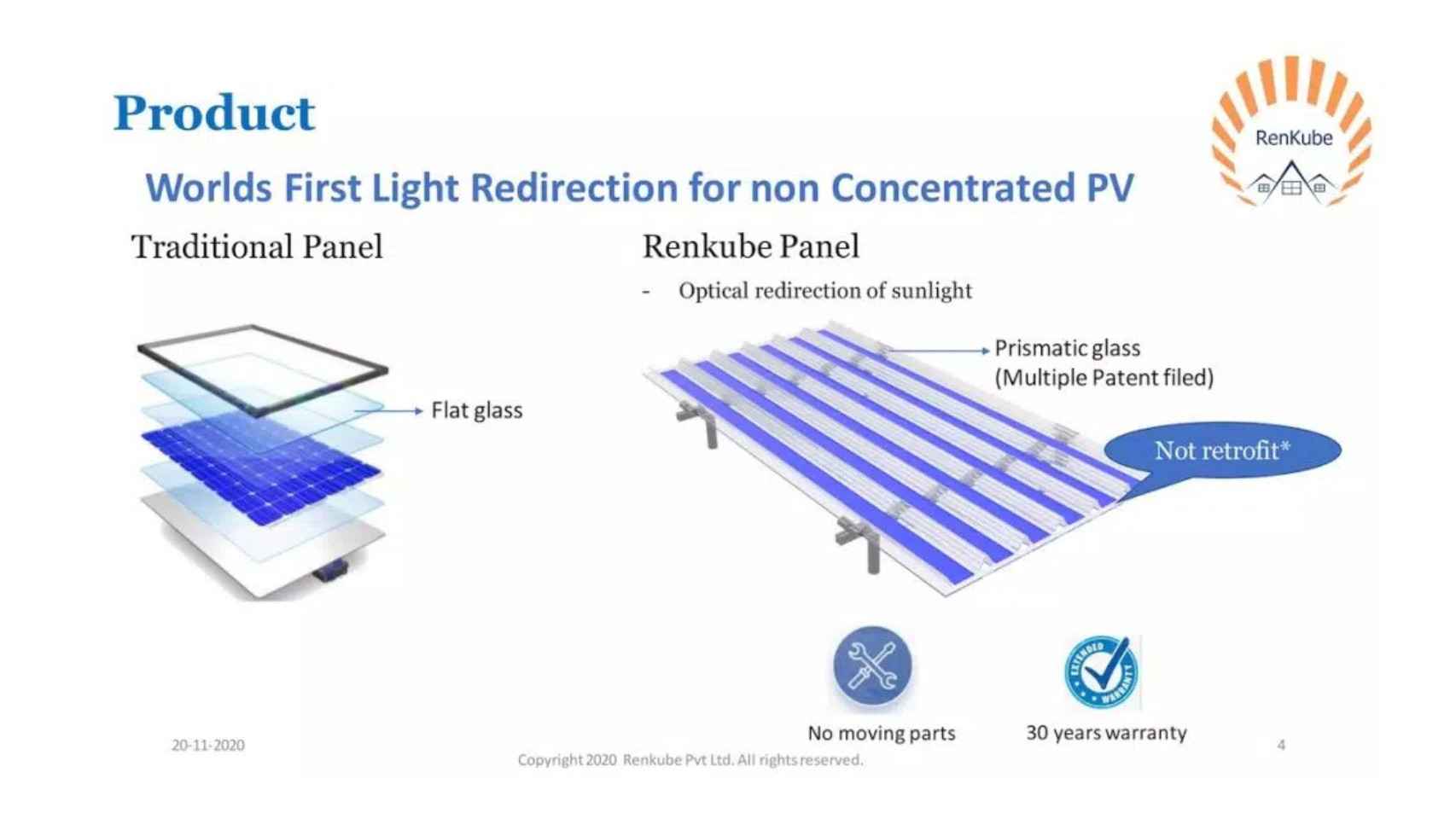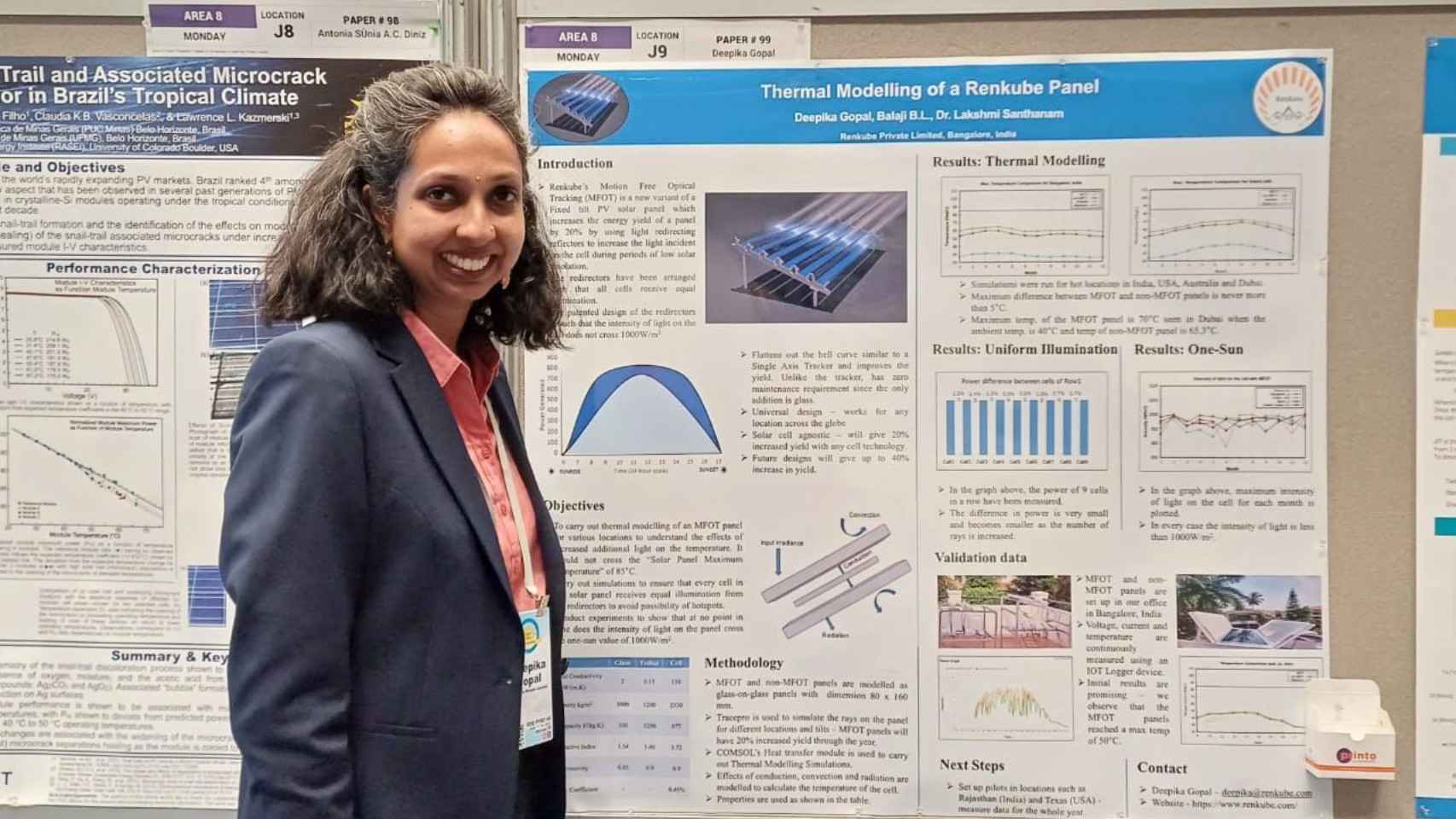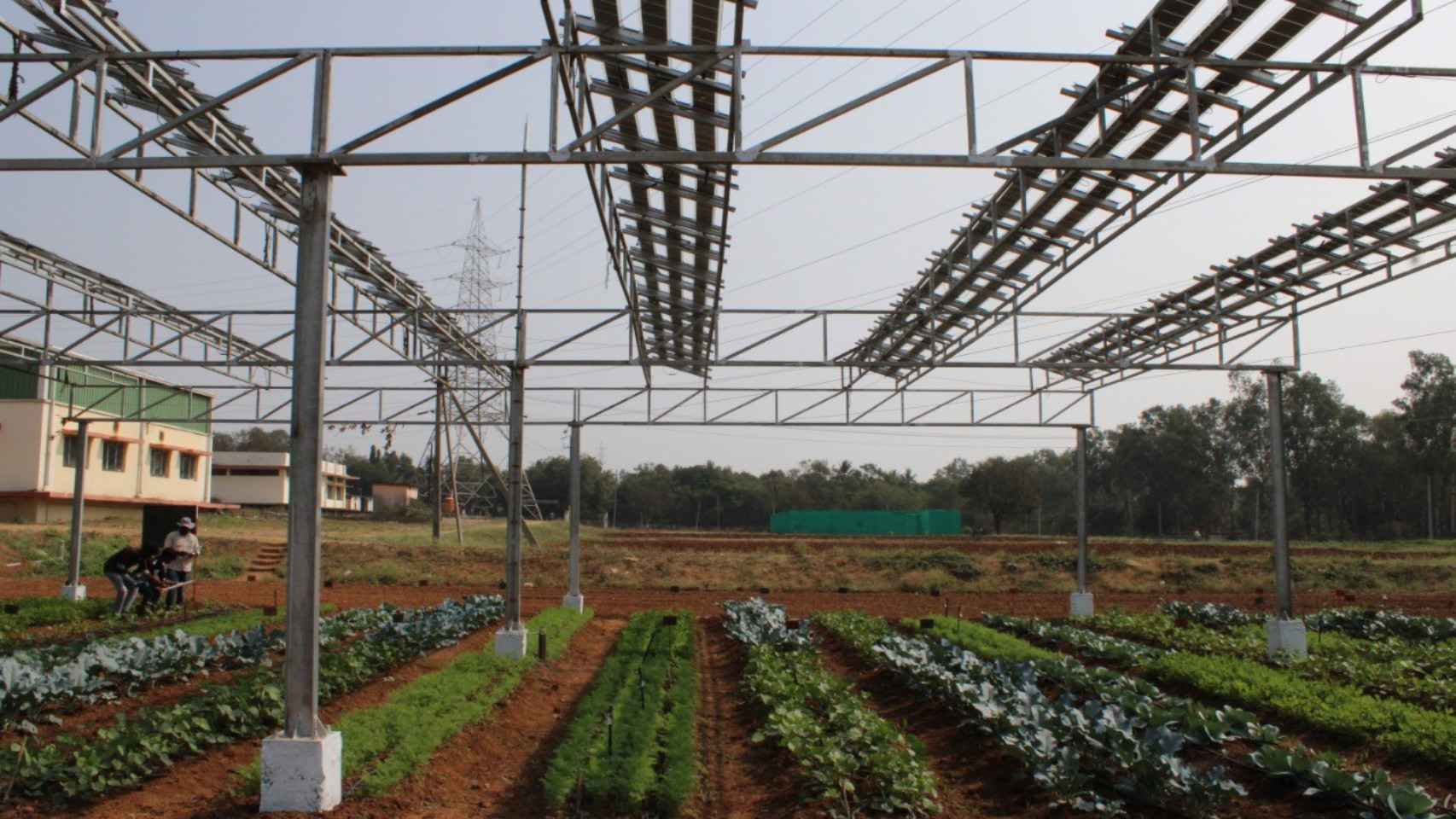An Indian startup has developed AI-powered software that designs geometric patterns on the glass of solar panels to improve their performance.
2023 has been a historic year for renewable energies in Spain. Both wind and photovoltaic have broken production records, according to data from Red Eléctrica Española. Specifically, solar energy represents 14% of our country’s energy mix and its production has exceeded 37,000 GWh, about 34% more than in 2022. However, there are still many pending challenges, something that is manifested in the continuous improvements in the efficiency of the panels and in technologies capable of increasing their performance without changing the installation.
One of the challenges that affect the panels installed on the roofs of houses and those that are increasingly common on balconies has to do with the drop in production related to the movements of the sun during the day: normally, only maximum efficiency at midday. In solar macro farms this is corrected thanks to mechanical solar trackers, which orient the panels towards the sun, but until now it was something unthinkable in photovoltaic panels for residential or commercial use.
It is something with enormous potential, especially in countries like India, where the more than 3,000 hours of sunshine a year are largely wasted. Thus came the idea of three Indian computer engineers, responsible for a software based on artificial intelligence to achieve the best glass designs to optimize the collection of sunlight and a non-motion optical tracking system (MFOT). . The result, according to their calculations, improves the energy production of the solar panels by between 20 and 40%.
Balaji Lakshmikanth Bangolae, Lakshmi Santhanam and Deepika Gopal worked for the multinational Cisco, but had long wanted to apply their knowledge in the renewable energy sector, until they founded Renkube in 2017. “We wanted to build something that was not made anywhere else in the world. world,” explains Bangolae in an interview published in Forbes India.
After several years of research and some setbacks, such as a first prototype of solar thermal energy that was not profitable, they came up with the idea with which they are now seeking to expand, seeking investments and partnering with solar panel manufacturers to launch it on the market.

Diagram of the operation of Renkube Renkube Omicrono panels
The key element of their proposal is to modify the layer of flat glass that is included in most traditional panels, inspired by the movements that sunflowers make in their search for sunlight throughout the day. As solar trackers are only viable in large photovoltaic parks, they saw an opportunity in the development of an optical system that would allow sunlight to be redirected inside the solar panel itself, without having to move it.
Thus, Renkube’s main contribution is a prismatic glass with its own geometric patterns, still pending patent, so that its plates are more efficient when it comes to producing energy. “We have shown that this can increase the energy performance of the panel by up to 20% and we are now studying how to increase the performance up to 40%,” explains Santhanam. “We provide the same benefits of a mechanical tracker, but in a completely motion-free way, so you don’t have the hassles associated with a tracker.”

Deepika Gopal, co-founder of Renkube, in a presentation of the Renkube Omicrono project
Typically, mechanical trackers increase energy performance by 15% to 20%, but they also entail an additional 10% cost and the need for ongoing maintenance. In addition, the motors and gears have a limited warranty of between 7 and 10 years, after which they must be replaced with new ones. On the other hand, the Renkube solar panel does not require any special maintenance, except for periodic cleaning with water.
One of the priorities of these three engineers when developing the first prototypes, already built, was to prevent, by redirecting sunlight, the solar cells from being damaged or hot spots being created in the panel, which would reduce its efficiency and It would jeopardize its durability. They have also managed to adapt the panels to specific requirements thanks to their computer program: “all the environmental conditions are met and our artificial intelligence software is responsible for finding the best geometric design of the glass,” says Santhanam.
First projects
Currently, those responsible for Renkube are looking for partners among solar panel manufacturers to begin marketing them on a large scale. Its price will be somewhat higher than traditional ones, about 10%, but the payback is faster (one or two years, according to Bangolae) thanks to this improvement in performance of up to 40%.
To test the first prototypes and check the results obtained in the laboratory under real conditions, the startup reached an agreement with the Telangana Professor Jayashankar State Agricultural University (PJTSAU) and the AgHub Foundation. Together, they have launched an agrivoltaic pilot project, that is, applied to an agricultural crop, in this case peanuts.

Agrivoltaics pilot project in Telangana Renkube Omicrono
According to Renkube’s calculations, the other agrivoltaic projects in India to date have involved a crop yield loss of up to 40% due to the shadow cast by the solar panels.
“We realized that our panels cause minimal shading due to their design, which means we can grow tropical plants. There is no loss in yield and the land can be used for both solar energy and agriculture,” says Bangolae. And not only that: the panel’s prisms redirect excess light not needed by the solar panel to the ground, something that could contribute to better crop growth.
Source: El Español
